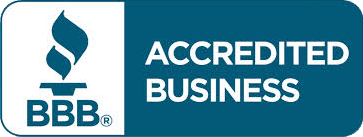SuretyGroup.com works with attorneys and plaintiffs throughout the US to get you the judicial or civil bond you need. We’ve simplified the underwriting process with an easy online application. In most cases, you can apply for a bond and receive approval the same day.
Bond Descriptions:
An Appeal Bond is posted by the losing party in a court case. It guarantees that the appellant -- the person appealing the ruling -- will pay the original judgment if the appeal fails or is denied.
A Cost Surety Bond is required by the courts to guarantee payment of court costs. The surety bond is usually required for principals involved in court cases where the case is being handled in a state in which the principal does not reside.
An Injunction Surety Bond is used in connection with an injunction court order or a preliminary injunction court order necessitates that a party cease and desist a particular action.
A Receiver Bond guarantees faithful performance of duty by as an assignee or person appointed by the courts. The person who is appointed to this position becomes the receiver and in nearly all cases is an uninvolved party or does not have an interest in the outcome. The receiver acts as an officer of the court and must perform the duties that the court directs them to do. This can include protecting of property and management or operation of assets as a fiduciary, agent or representative.
A Release of Lien Surety Bond releases a lien that has been filed with a public trustee or court against an estate for an amount claimed for labor and materials furnished for the construction of a building or improvements. Pending final determination of the owner's liability, the owner may release the lien by posting a bond for payment of any amount that may be found due to the individual filing the lien.
A Replevin Surety Bond is a bond required by the court for any party who is suing another party to secure possession of property that they believe they have a legal right or claim to.
How Much Will This Bond Cost?
The premium that you pay for a Judicial or Civil Court Surety Bond will vary based on the bond amount required and your credit. In addition to the premium charged, collateral (which is a form of security) may be required by the underwriter reviewing your application.Related Links:
Public Officials Surety BondDownload an Application for a Replevin Surety Bond
Apply Online for a Plaintiff Attachment Surety Bond
More Surety Bond Questions?
Check out our FAQ page or What’s a Surety Bond? page. Should you need or choose to buy a surety bond, buy from us. SuretyGroup.com has been underwriting surety bonds throughout the U.S. for more than 35 years. When you work with us, you enjoy the unique benefit of dealing with a team of highly experienced surety agents with in-house underwriting authority. This allows you to receive competitive, low rates, quick approvals, and immediate bond delivery. In most cases, your bond will be delivered within 24 hours after you apply for it.
For a downloadable application









